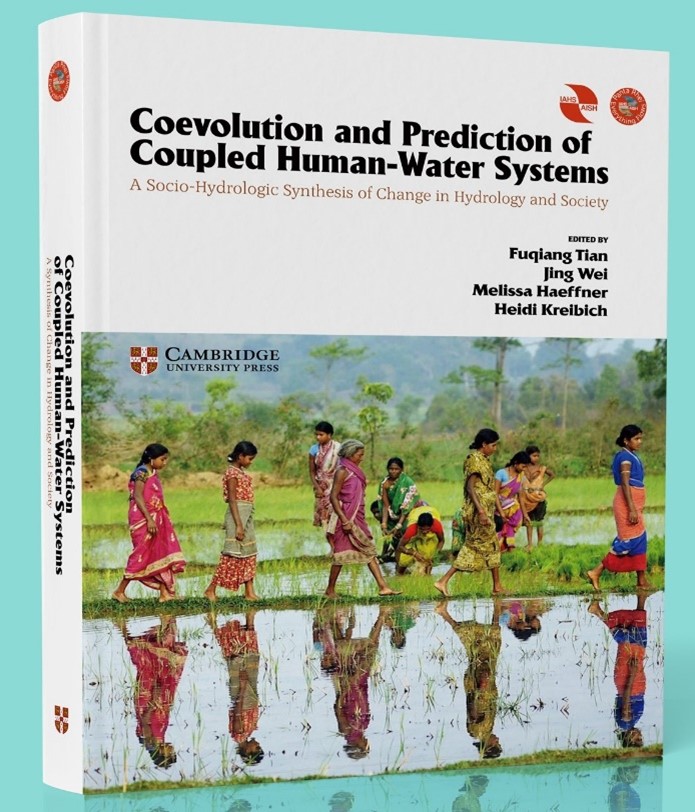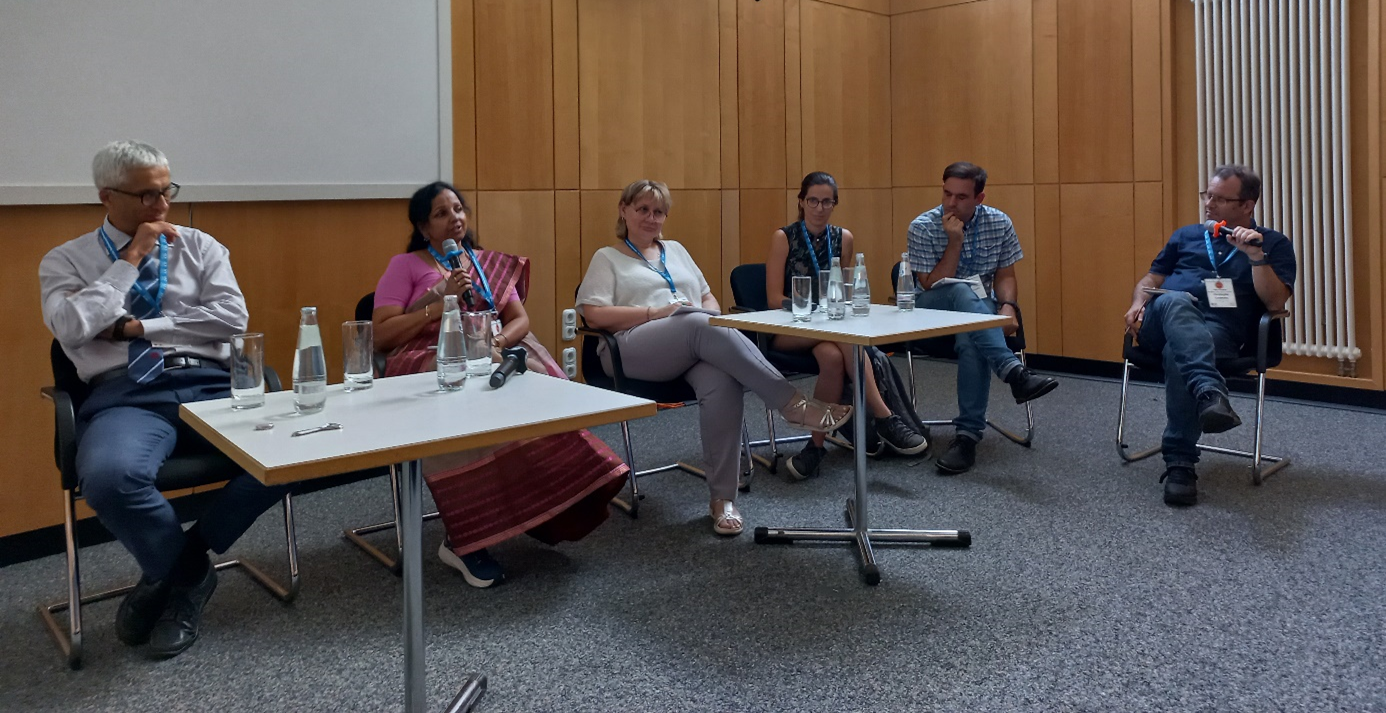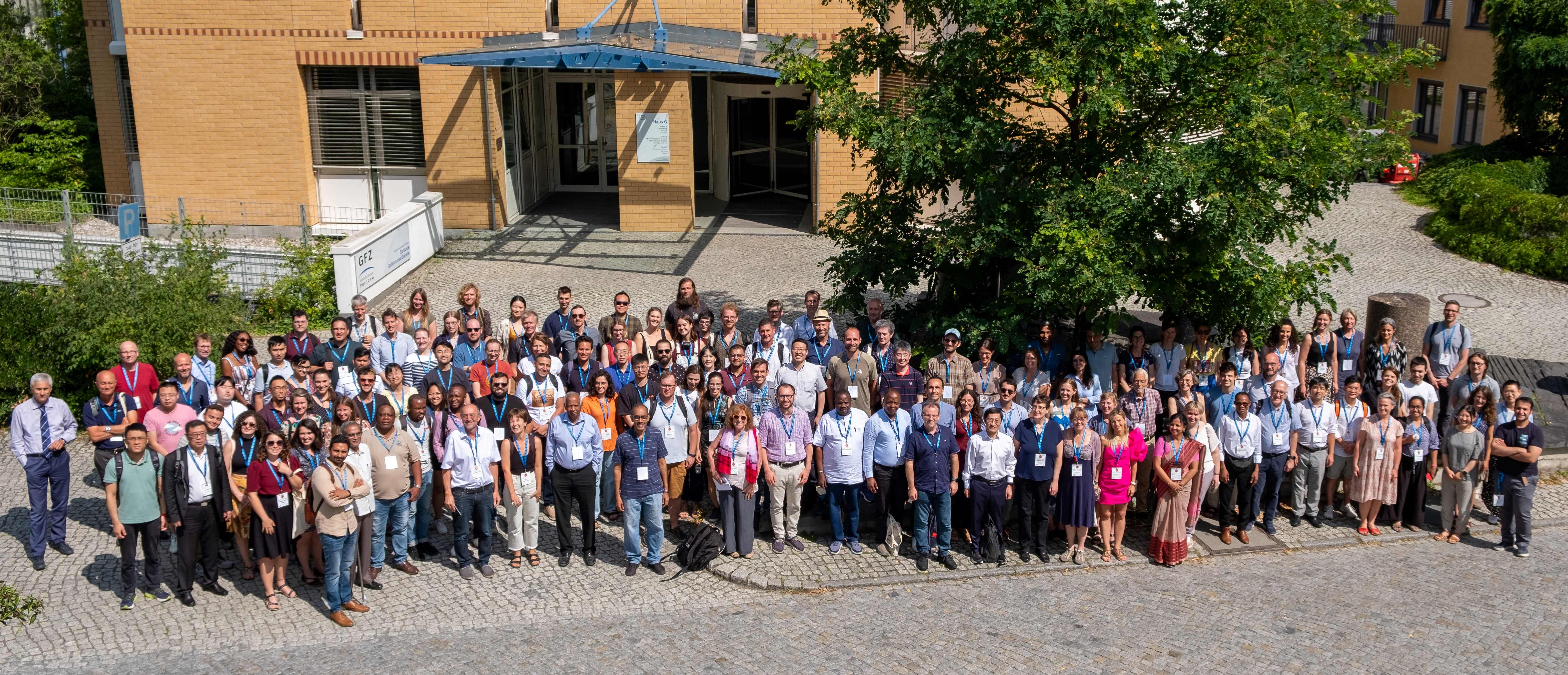IAHS News
Panta Rhei Symposium
The final symposium for the scientific decade Panta Rhei – Change in Hydrology and Society brought together 150 hydrologists, engineers, social scientists and practitioners from 32 countries at the GFZ German Research Centre for Geosciences from 10-11 July 2023. The community celebrated the progress made in the Panta Rhei Scientific Decade, identified remaining issues, and discussed further steps. During the symposium, the Panta Rhei synthesis book "Coevolution and Prediction of Coupled Human-Water Systems" was launched.

Programme with diverse perspectives
Keynote lectures by Johan Rockström (Director of the Potsdam Institute for Climate Impact Research, Germany), Fuqiang Tian (Professor at Tsinghua University, China), Manuela Brunner (Professor at ETH Zurich, Switzerland) and Joerg Niewoehner (Director of the Integrative Research Institute on Transformations of Human-Environment Systems (IRI THESys), Germany) highlighted the phenomena, problems and possible solutions associated with the changes in the water cycle due to global change from the perspectives of climate science, hydrology and anthropology.
More than 40 young scientists had the opportunity to present their detailed results of case studies from around the world in flashlight talks and posters. A group of students from the socio-hydrology course at the Humboldt Universität zu Berlin presented their interdisciplinary work on human-water relations along the Panke River in Berlin-Brandenburg. Two international panel discussions and the visionary outlook by Günter Blöschl (Professor at TU Wien and Past-President of IAHS) rounded off the programme.
Panel discussion on remaining gaps and future research (panellists from left to right: Alberto Montanari, Archana Sarkar, Valeriya Ovcharuk, Mariana de Brito, Pedro Chaffe and moderator Christophe Cudennec).

Among the important findings of the Panta Rhei decade are the following:
-
- Long-term developments, including feedbacks between natural and socio-economic processes, need to be understood, as their failure to be taken into account can lead to unintended, negative consequences of human interventions
- A participatory approach involving stakeholders adds relevant detail and legitimacy to the research design, modelling and outcomes
- Justice and equity issues need to be considered in research design, modelling and implementation
- Flood and drought risk management needs to adopt a longer-term complex system view rather than focusing on short-term risk reduction
- There is even more potential for learning from similar water problems in different places of the world.
Heidi Kreibich, Panta Rhei chair for the period 2021-2023, adds: "We expect further progress through the interplay of broadening and synthesis: for example, we need to learn even more from other people and studies, empower local populations and build alliances with other scientific communities, for example from climate research. The Panta Rhei decade came to an end, but the vibrant, active community will continue to work together in the new International Commission on Human-Water Feedbacks (ICHWF) and will support the new scientific decade ‘Science for solutions: Hydrology Engaging Local People IN one Global world (HELPING)’.”

